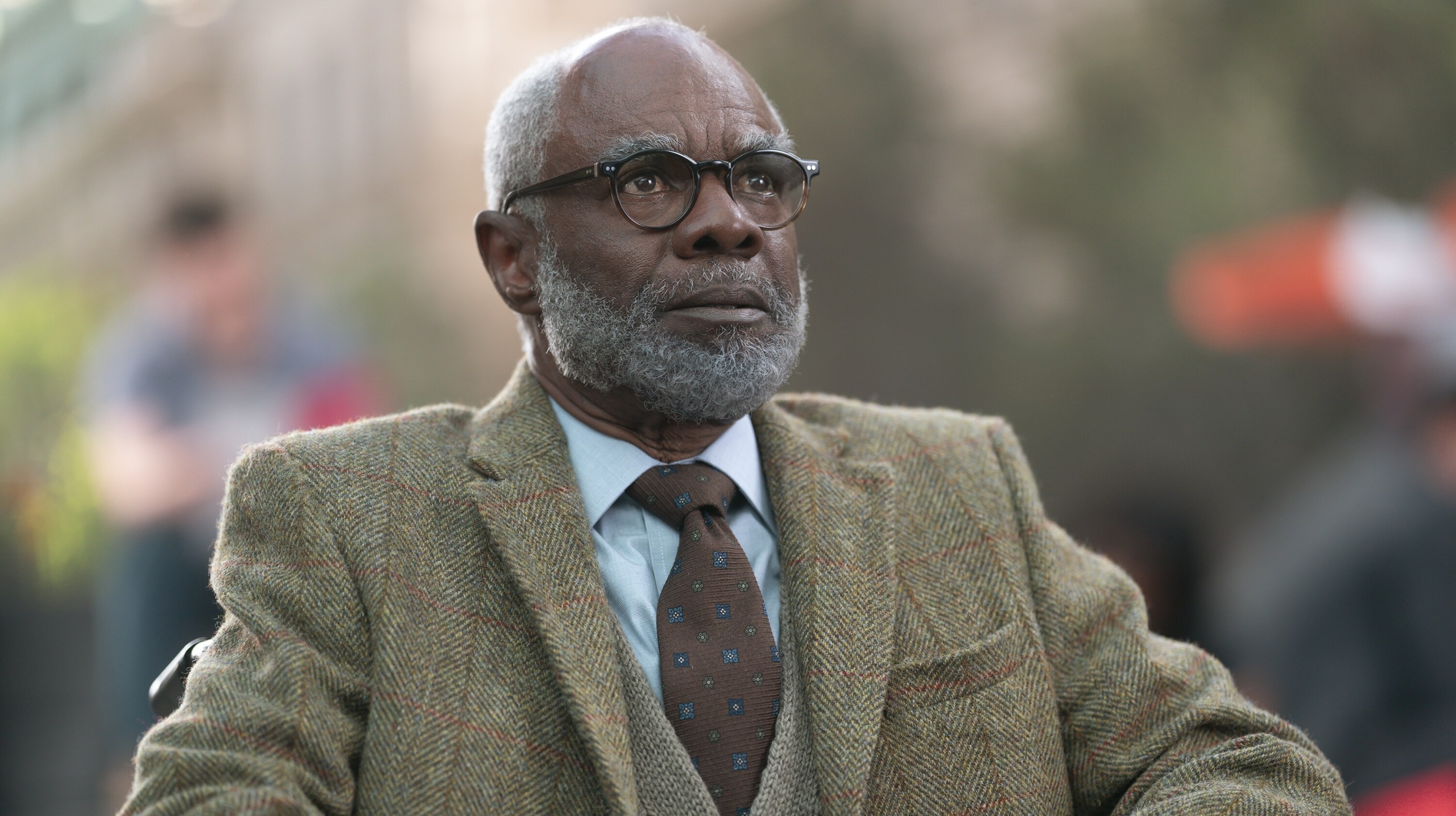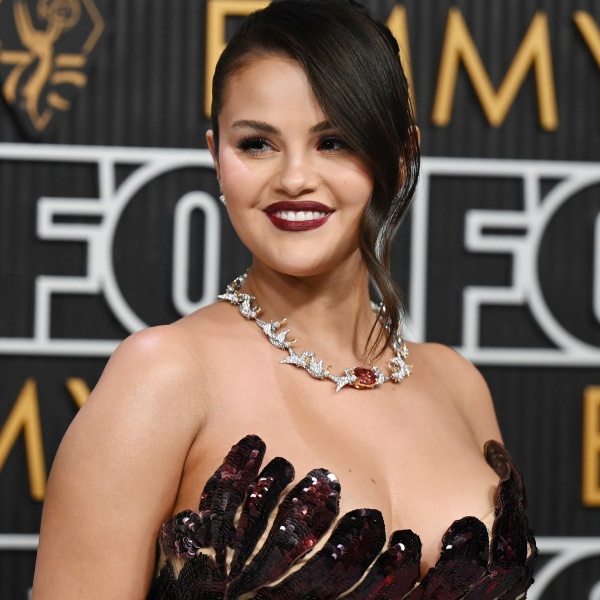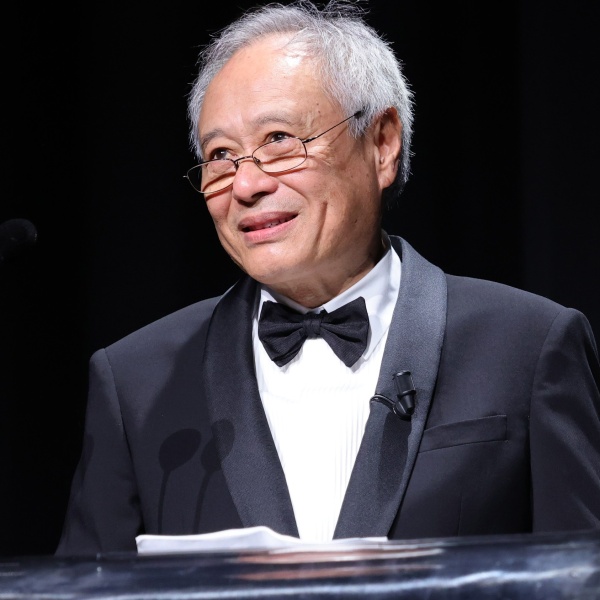“Percy Jackson and the Olympians” utilizes an interesting mix of ancient and modern for its story of demigods in the contemporary world trying to undo the petty grudges and unintended consequences of the Greek Gods’ wrath (as they always are). Production designer Dan Hennah and costume designer Tish Monaghan blend archetypical hoplite gear with goofy orange camp T-shirts; the show gives the mythological entities that Percy (Walter Scobell), Annabeth (Leah Jeffries), and Grover (Aryan Simhadri) encounter free reign to assert their personalities through clothing, style, and, in the case of Mr. D (Jason Mantzoukas), a mild addiction to Diet Coke.
So in honor of that inventive melding of ancient stories with the modern baggage of American pop culture, we found 12 different examples of depictions of the Greek gods in film and television. Now, we’re talking just the classic 12 Olympians here. You should absolutely stop reading this article and turn on Pier Paolo Pasolini’s 1969 take on “Medea” if you haven’t seen it yet and want a visually searing depiction of a Greek myth with modern relevance — or grab the nearest classicist you know and watch them watch Wolfgang Petersen’s “Troy” for the ultimate experience in schadenfreude. But we limited our choices to depictions of Zeus, Poseidon, Hades, Hera, Demeter, Athena, Apollo, Artemis, Aphrodite, Hephaestus, Hermes, and Dionysus (Hestia is too cool for this list anyway).
There’s a range of ways to visually interpret the Greek gods, from hewing to ancient Greek art and clothing styles to fully modern dress and attitude. Size is also variable, with some stories trying to big up the gods on a billowing cloud-land above; others fully integrate gods and mortals, since the gods’ concerns are identical to our own. The Olympians just have more time and resources to pursue them. But the best versions of the Greek gods are the ones that work within the worlds they’re occupying, as opposed to trying to aim (mixing metaphors here) for a Platonic ideal.
-
“American Gods” (2017-2021)

Image Credit: Screenshot/Starz It’s late in the game for “American Gods,” but casting Blythe Danner as Demeter is such an inspired pull that we have to shout it out. Demeter’s “journey” to America is as terrifying as nature, and Danner’s take on her is a regal one. Elegance itself, Danner doesn’t need to try to make Demeter timeless (and bowed by loss, which is just as timeless as the gods). It makes her an intriguing partner for Wednesday (Ian McShane), who can’t get enough time.
-
“Clash of the Titans” (2010)

Image Credit: ©Warner Bros/Courtesy Everett Collection At the very least, Liam Neeson gets to “Release the Kraken!” as Zeus. “Clash of the Titans” is trying so, so hard to be monumental that even Zeus’ armor has lens flare. It all ends up looking a bit silly and very tied to the CGI capacities of 2010 and to Daft Punk’s “Get Lucky” era of design that is somehow sleek and bulky. But the Olympians do stand in marked contrast to Perseus (Sam Worthington) and the grimy mortals on the ground. Which may not work so well for the film, but it is the intended balance between the gods and the Greeks.
-
“Hercules” (1997)

Image Credit: ©Buena Vista Pictures/Courtesy Everett Collection Whatever you want to say about fusing a gospel song style with the story of Hercules — and if it’s not, “‘I Won’t Say (I’m In Love)’ is an amazingly fun musical number and introduced a whole generation of millennials to the concept of meta-textual references” then frankly we don’t want to hear it — utilizing the art style of actual red and black figure vase pottery from ancient Greece is an inspired, joyous animation choice that carries something of the spirit of the Olympian gods over to the Disney film. Zeus and Hera are happily married in this one, so, that art style is about all “Hercules” has going for it in the Olympian accuracy department, but we’ll take it.
-
“Hercules in New York” (1969)

Image Credit: Everett Collection / Everett Collection For the clash of cultures in this comedy to work, New York needs to be at its New York-iest and Hercules needs to be at his most Herculean. Easy enough to do when you have Arnold Schwarzenegger in a toga. But the true comedy nectar of “Hercules in New York” is probably Earnest Graves as Zeus, who booms and shouts and only seems all the smaller for it.
-
“Jason and the Argonauts” (1963)

Image Credit: Courtesy Everett Collection The exact opposite approach of “Hercules in New York.” There are a lot of reasons to go back to the original “Jason and the Argonauts,” but one of them is its approach to the mythological forces that attempt to waylay the Argonauts on their quest. Integrated with Ray Harryhausen’s legendary special effects, the Greek gods really do seem like powerful forces, part of the overall practical magic that animates skeletons and batters the Argo. Bill Gudgeon goes uncredited as Triton the Sea God, that’s how much of an effect he is. And that, in its own way, feels very faithful to the myths.
-
“O Brother, Where Art Thou?” (2000)

Image Credit: ©Walt Disney Co./Courtesy Everett Collection Accept no substitutes. “O Brother Where Art Thou?” is only loosely a retelling of “The Odyssey” but it gets the mythological characters it brings into the context of the Depression-era South exactly right. The sirens (Mia Tate, Christy Taylor, and Musetta Vander) and the cyclops (John Goodman) embody threatening American ideas in the same way their ancient Greek counterparts did, and while Sheriff Cooley (Daniel von Bargen) has plenty of devil in him, there’s a cold relentlessness to his pursuit of Everett (George Clooney) that is exactly how Hades would behave on the surface of the Earth.
-
“Once Upon a Time” (2011-2018)

You have to go deep into the madness of late-stage “Once Upon a Time” for any Greek deity in what is largely a Disney princess saga, but just as Ariel is the daughter of Triton — technically a son of Poseidon and the Nereid Amphitrite — the ABC series posits that Ursula (Merrin Dungey and Tiffany Boone) is a daughter of Poseidon (Ernie Hudson). The depiction of Poseidon here is very in keeping with the visual language of the show, so, LARP-lite as filtered through an ABC show’s costume budget. But Poseidon is also a very ABC-ified god of the sea. What actual storm-bringer would ever be caught grieving, even by Captain Hook (Colin O’Donoghue)?
-
“Percy Jackson and the Olympians: The Lightning Thief” (2010)

Image Credit: Screenshot With the new TV show out, we can now authoritatively say that “The Lightning Thief” adopts the seaweed-brain approach to Rick Riordan’s take on the 12 Olympians. Which is no slight against Kevin McKidd as the god of the sea/the Hawaiian shirt-wearing dweeb not cool enough to just hang out with Sally Jackson (Catherine Keener). “The Lightning Thief” screenplay is battling so hard against the bones of its own story that it can’t make up its mind whether or not the Olympians are some Renn Faire mish-mash of ancient Mediterraneans or more modern, stylized embodiments of the domains each Olympian represents. Easily the most interesting of the bunch is Rosario Dawson’s surprisingly, um, opportunistic take on Persephone, but even we have no idea why she was making eyes at Grover (Brandon T. Jackson).
-
“Percy Jackson and the Olympians” (2023)

Image Credit: Disney+ As of this writing, we haven’t had too many Olympians show their faces on the television adaptation of the Percy Jackson series. But aside from the momentary weirdness of reconciling the fact that Glynn Turman isn’t just playing a centaur, he is playing a HUGE centaur version of Chiron in comparison to the kids at Camp Half-Blood, “Percy Jackson and the Olympians” has done a fairly faithful and clever job of tackling Rick Riordan’s take on the Greek gods. The largest deity (and personality) so far is Jason Mantzoukas as Dionysus, aka Mr. D, cursed by Zeus with both sobriety and looking after the Long Island home base of all demigods. Mantzoukas plays Mr. D as less of a grump and more of a weirdo for whom things have only gotten weirder. His Diet Coke addiction and love of animal prints certainly speak to a being whose domains, among other things, include ritual madness.
-
“Thor: Love and Thunder” (2022)

Image Credit: ©Walt Disney Co./Courtesy Everett Collection Zeus as an unhinged, vainglorious, petulant fuckboi who showboats around on his past glories and has a weird accent for no discernable reason? Absolutely no notes. Russell Crowe got it in one.
-
“Wonder Woman” (2017)

Image Credit: ©Warner Bros/courtesy Everett Collection / Everett Collection The identity that Ares, god of war, assumes in order to perpetrate and prolong World War I is one of the smartest things in the original “Wonder Woman.” David Thewlis sure seems like a put-upon British cabinet official, and he uses his persona to his advantage, but there’s just the tiniest little gleam of something else going on, too. That something else is much less thrilling when Ares finally reveals himself, of course — not the least for how much of the final fight between Ares and Wonder Woman (Gal Gadot) is ungrounded in comparison to the more kinetic fight sequences on Themiscyra and in No Man’s Land. But for as much earthly armor production designer Aline Bonetto and costume designer Lindy Hemming build into the look of Diana’s homeland, it just feels right for a god in the modern world to choose a look from Saville Row.
-
“Xena: Warrior Princess” and “Hercules: The Legendary Journeys”

Image Credit: Screenshot This is the best depiction of Greek mythological deities in cinema. Yes, “the best” does mean “the sexiest.” We will not be taking questions at this time.
Seriously, though, it’s hard to have more fun than the version of the mythological world that “Hercules” and especially “Xena” inhabit. There isn’t too much differentiating the gods from our heroes (certainly there isn’t the budget to do so) but the actors tasked with playing everyone from Ares (the late Kevin Smith) and Aphrodite (Hudson Leick) to Julius Caesar (Karl Urban) and Virgil (William Gregory Lee) understand their assignment: It is to be big and fun and scheming and throw the most they can at Lucy Lawless. The great pleasure of “Xena: Warrior Princess” (and all stories of great heroes) is the devious ways she finds to throw that energy right back.






